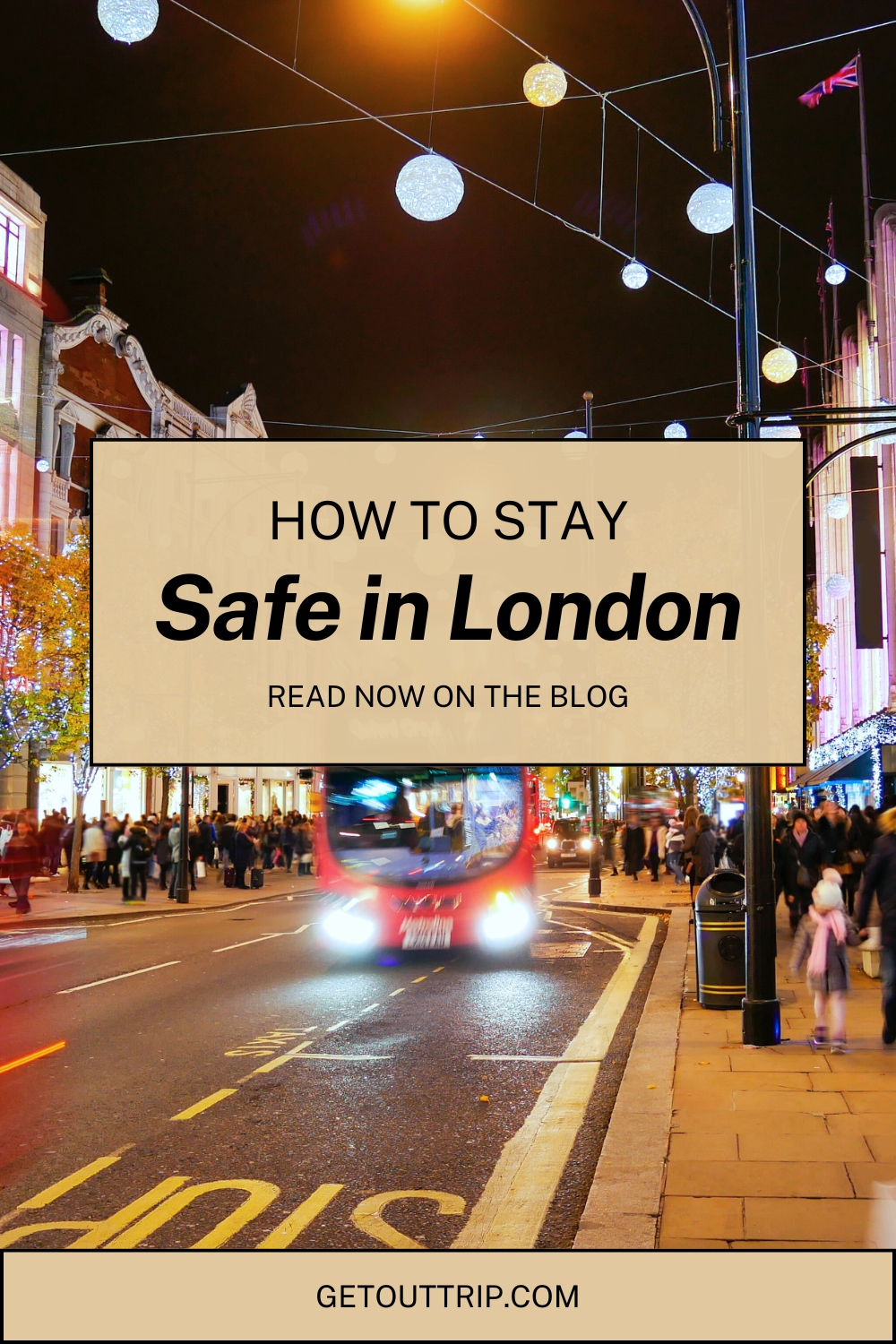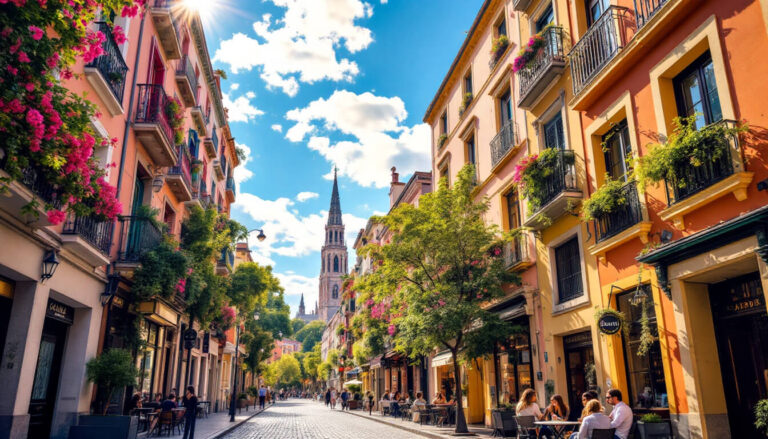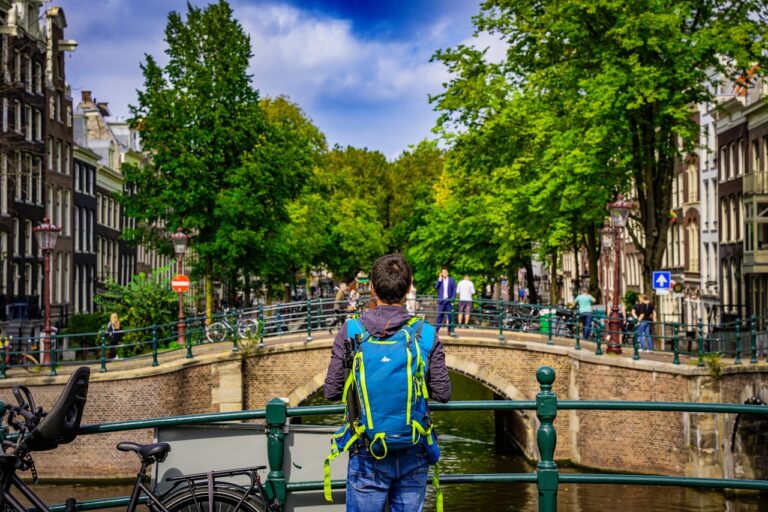How to Stay Safe in London: The Ultimate Guide for Travelers
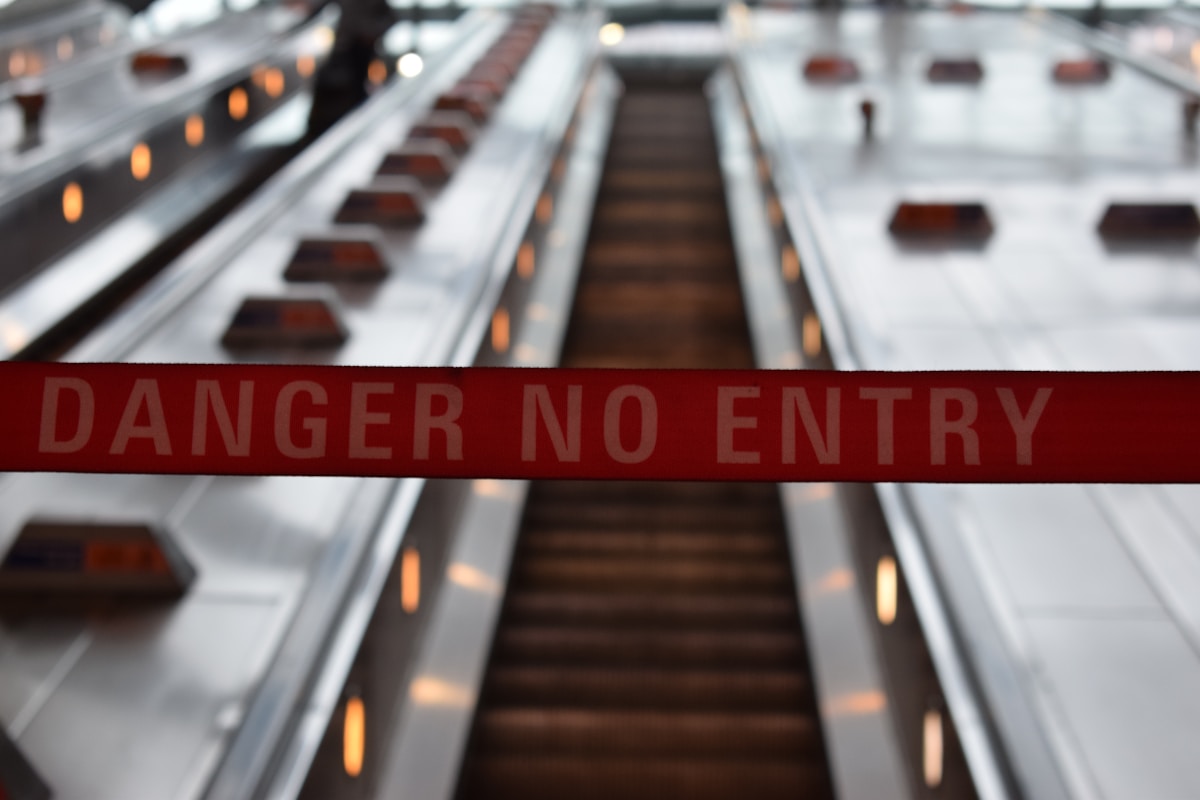
London is generally safe for travelers, it’s wise to remain mindful of your surroundings, particularly in busier areas or after dark.
Opting for licensed taxis or ride-sharing services can add peace of mind, and keeping valuables discreet is a smart choice.
A little research into different neighborhoods can also enhance your experience. It’s helpful to have emergency numbers on hand—999 for urgent needs and 101 for non-emergencies.
Being thoughtful with your personal belongings and information and staying connected with secure Wi-Fi or a local SIM, are small steps that can help ensure a smooth trip.
By following these guidelines and trusting your instincts, you can enjoy London’s vibrant culture while minimizing risks.
The Summary: Ultimate Guide to Safety in London for Travelers
Hide- London is generally a safe city, but it's essential to be aware of your surroundings, take precautions, and familiarize yourself with local safety practices 💡
- Consult official travel advisories, government websites, and local authorities for the most up-to-date information on travel restrictions, safety guidelines, and any specific considerations related to your destination 📰
- Research local boroughs and neighborhoods to determine which areas are considered safe, such as Richmond, Kingston upon Thames, and Hampstead 📍
- Stay aware of your surroundings, use well-lit and busy areas, and secure your belongings to minimize the risk of pickpocketing or theft 🔒
- Plan your routes in advance, use reliable transportation options, and stay connected with friends or family members, especially when traveling alone 📍
- Trust your instincts and take appropriate actions if you feel uncomfortable or suspicious in a situation, such as moving to a crowded area or seeking assistance from authorities 🤔
- Choose reputable accommodations and services, and read reviews and check ratings before making a decision 🏨
- Be cautious with your personal information, and be mindful of potential scams or fraud attempts 📝
- Stay informed about local news and advisories, and consult the official website of the Metropolitan Police Service in London for safety and security updates 📰
- Consider purchasing travel insurance that covers medical emergencies, theft, and other unexpected incidents 📈
- Be aware of local scams and scammers, and take necessary precautions to avoid falling victim to them 💸
- Female travelers can feel safe in London, but it's essential to be cautious, particularly at night and on weekends, and to trust their instincts and take necessary precautions 💁♀️
- London maintains a relatively safe atmosphere at night, but it's crucial to exercise caution when visiting bars and clubs, and to stay vigilant and aware of your surroundings 🍹
- Different contact numbers are available for emergency and non-emergency situations, such as 999 and 112 for emergency calls and 101 for non-emergency calls to the police 📞
- Stay aware of your surroundings and trust your instincts, avoiding potentially unsafe situations.
- Use licensed transportation options and verify driver identities when using ride-sharing services.
- Keep valuables secure in hidden pockets or bags, and utilize hotel safes for important items.
- Familiarize yourself with emergency numbers (999 for emergencies, 101 for non-emergencies) and local police stations.
London: A Safe City for Travelers
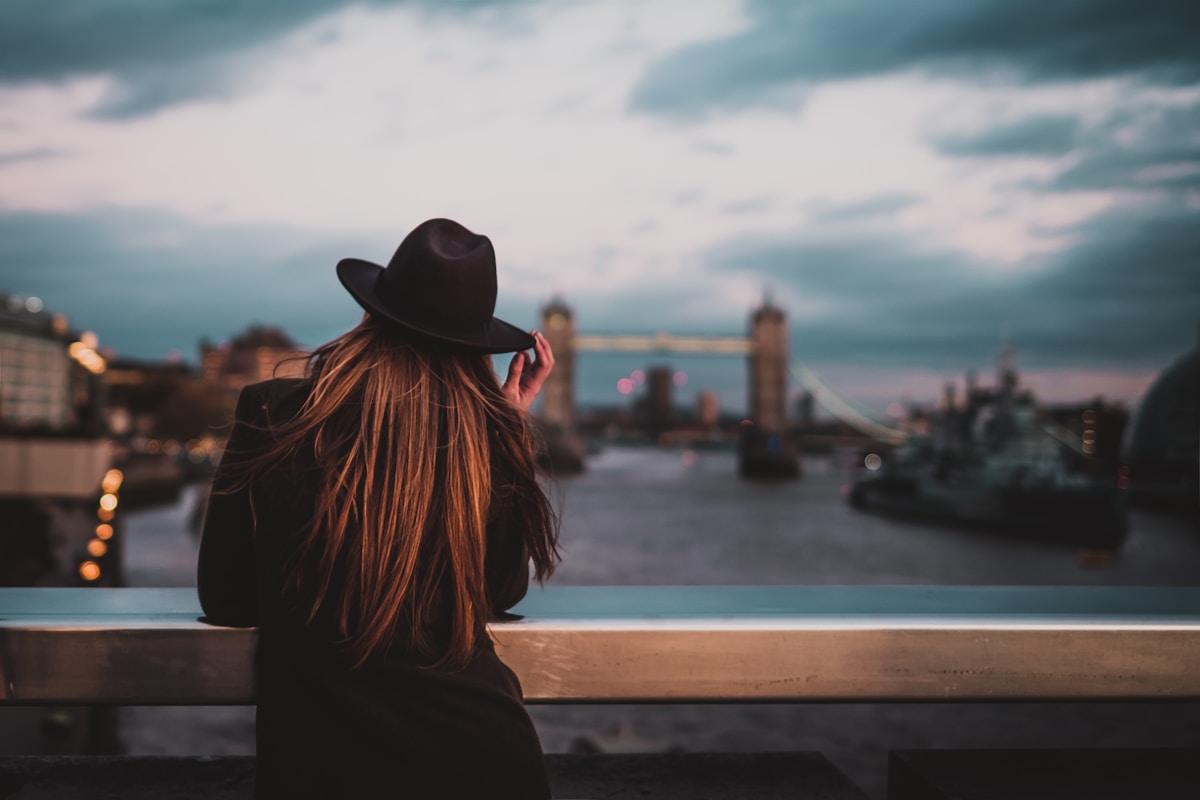
London is generally considered a safe city for travelers, but understanding local safety practices is essential for a secure visit.
Familiarize yourself with emergency numbers, particularly 999 for urgent assistance, and be aware of the extensive CCTV coverage throughout the city.
Additionally, learn about the city’s transportation system, including the Night Tube and bus services, to guarantee safe travel during late hours.
Understanding Local Safety Practices
London is generally a safe city for travelers, but understanding local safety practices is essential.
Familiarize yourself with the Metropolitan Police Service, including their non-emergency contact number (101) and the locations of nearby police stations.
Stay informed about current events and potential safety concerns by regularly checking reputable local news sources and official travel advisories from your country’s embassy or consulate in London.
Familiarizing Yourself with Local Authorities
Familiarizing yourself with local authorities is an essential step in ensuring your safety while visiting the UK’s capital.
London safety measures are robust, but staying informed is vital. Understand that the Metropolitan Police Service is the primary law enforcement agency.
Memorize emergency numbers: 999 for immediate assistance and 101 for non-emergencies.
Knowing these details enhances how safe London is for travelers and supports your freedom to explore confidently.
Staying Informed about Local News and Advisories
How can travelers stay abreast of local news and advisories to guarantee a safe visit to the British capital?
Staying informed about current events, potential risks, and official guidance is essential for maintaining personal safety and maximizing your London experience.
| Information Source | Benefits |
|---|---|
| Official London Gov Website | Real-time updates |
| Local News Apps | Localized alerts |
| UK Foreign Office | Travel advisories |
| Social Media Channels | Community insights |
| Hotel Concierge | Personalized advice |
Is London safe to visit? Generally, yes. Safety in London is prioritized, making it safe for tourists.
Determining the Safest Areas in London
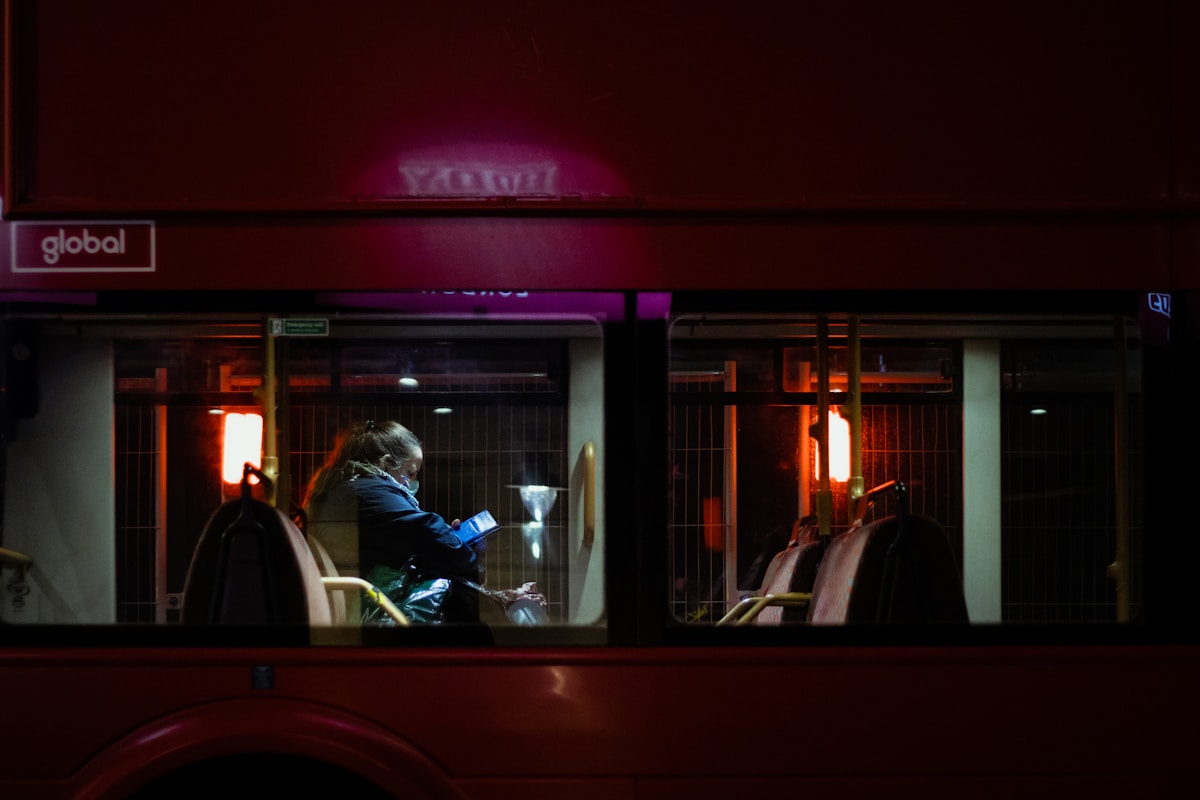
To identify the safest areas in London, travelers should focus on neighborhoods with consistently low crime rates.
Researching official crime statistics and reports from local authorities can provide valuable data on area safety.
Additionally, seeking insights from local residents, expats, and recent visitors through online forums and community platforms can offer practical, up-to-date information to make informed decisions about accommodation and exploration.
Neighborhoods with Low Crime Rates
London’s safest neighborhoods offering residents and visitors greater peace of mind and security. Several areas consistently rank high for safety.
Richmond upon Thames, located in southwest London, is often cited as one of the safest London boroughs, with its leafy suburbs and riverside attractions.
Harrow, in northwest London, also maintains a reputation for low crime rates and a strong sense of community.
For those wondering ‘is London a safe city?’ it’s important to recognize that many areas provide a secure environment.
When seeking safe places to stay in London, consider these neighborhoods:
- Sutton: Known for its low crime rates and suburban charm
- Kingston upon Thames: Offering a blend of safety and riverside living
- Bexley: Consistently ranked among the safest boroughs in London
These areas not only provide a safer environment but also offer unique London’s attractions and experiences for visitors.
By choosing accommodations in these neighborhoods, travelers can enjoy London’s vibrant culture while minimizing safety concerns.
Researching Local Insights for Informed Decisions
Gathering reliable, up-to-date information from local sources is essential for accurately evaluating the safety of different areas in London.
When researching, consult official government websites, local police reports, and reputable news outlets for current crime statistics and safety advisories.
Additionally, engage with online forums and social media groups dedicated to London residents and travelers to gain real-time insights and personal experiences.
For those wondering ‘is London safe to travel’ or ‘is it safe to visit London,’ it’s vital to understand that safety can vary by neighborhood and time of day.
Investigate specific areas of interest, such as asking ‘is Canary Wharf safe’ or ‘is Central London safe,’ to make informed decisions about accommodation and itinerary planning.
Utilize interactive crime maps provided by the Metropolitan Police to visualize safety trends across different boroughs.
Remember that while official statistics are valuable, they don’t always capture the full picture. Supplement your research with advice from locals, expats, and frequent visitors to London.
This combination of data-driven analysis and on-the-ground perspectives will help you confidently answer the question, ‘is it safe to go to London’ for your specific travel needs and preferences.
Safety Tips for Travelers in London
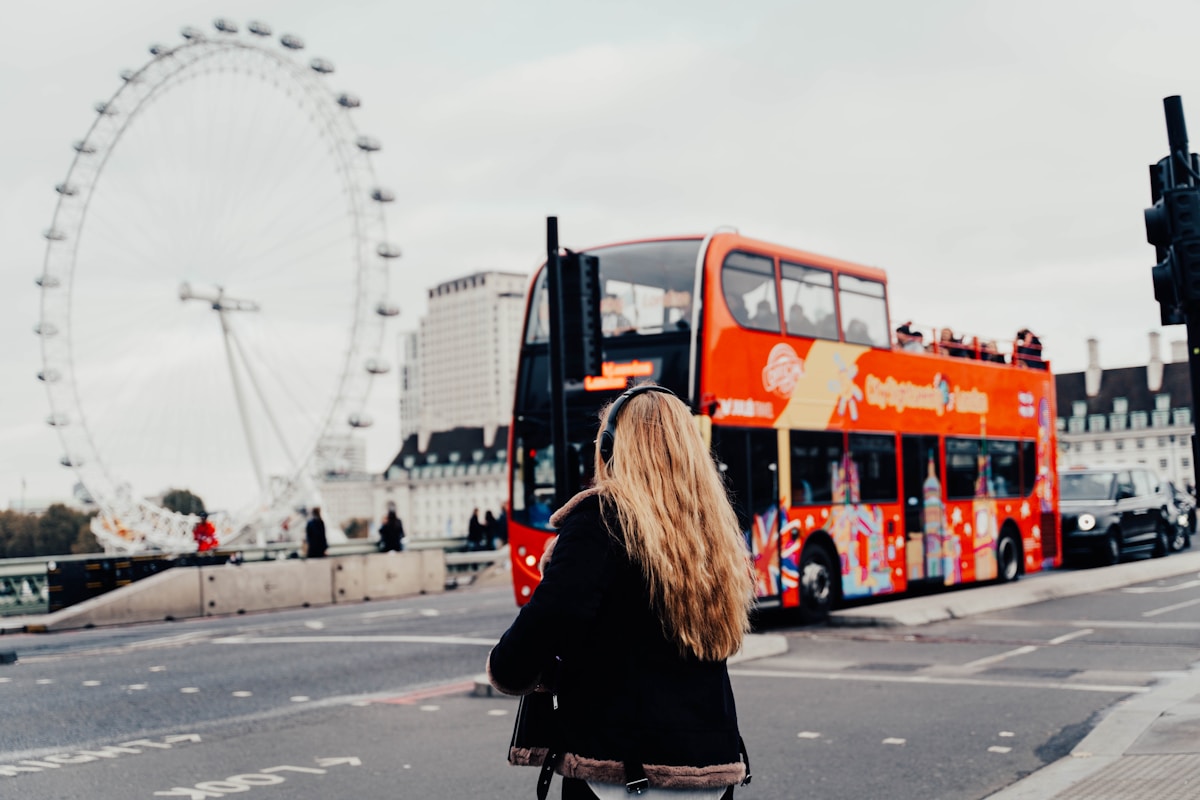
Ensuring your safety while exploring London requires a combination of practical strategies and vigilant behavior.
Key safety measures include maintaining situational awareness, safeguarding your personal belongings, and thoroughly planning your travel routes before venturing out.
Additionally, staying connected with reliable communication methods and trusting your instincts can greatly enhance your security during your London visit.
Staying Aware of Your Surroundings
Remaining vigilant and aware of your surroundings is essential for maintaining personal safety while exploring London’s bustling streets and attractions.
As you navigate the city, pay attention to the people and activities around you, particularly in crowded areas or on public transportation.
your instincts and be prepared to remove yourself from any situation that feels uncomfortable or potentially dangerous.
To enhance your situational awareness, consider the following tips:
- Limit distractions such as excessive smartphone use or wearing headphones
- Familiarize yourself with your route before heading out
- Observe the behavior of those around you and note any suspicious activity
Securing Your Belongings
To safeguard your personal belongings while exploring London, implement a variety of practical security measures that deter theft and minimize the risk of loss.
Keep valuables close to your body in secure, hidden pockets or bags worn across the chest.
Avoid displaying expensive items openly, and remain vigilant in crowded areas where pickpockets often operate. To make it clear, consider utilizing these essential security strategies:
| Strategy | Description | Benefit |
|---|---|---|
| RFID-blocking wallet | Protects cards from electronic theft | Prevents unauthorized scans |
| Anti-theft backpack | Features hidden zippers and slash-proof material | Deters pickpockets and thieves |
| Portable safe | Secures valuables in hotel rooms | Provides peace of mind |
When using public transportation or visiting popular tourist attractions, maintain constant awareness of your belongings.
Avoid placing bags on the ground or hanging them on chair backs in restaurants. Instead, keep them on your lap or securely fastened to your person.
If you must carry large amounts of cash, distribute it among different pockets or bags to reduce the impact of potential theft.
By adopting these proactive measures, you can enjoy London’s vibrant atmosphere with confidence, knowing your possessions are well-protected.
Planning Your Routes in Advance
Savvy travelers map out their London itineraries beforehand, minimizing the risk of wandering into unfamiliar or potentially unsafe areas.
Utilize reliable travel apps and official transport websites to plan your routes efficiently. Familiarize yourself with the city’s layout, focusing on major landmarks and transport hubs.
This preparation not only enhances safety but also maximizes your time in the city. However, when planning your routes, consider these key factors:
- Time of day: Some areas may be less safe after dark
- Transport options: Tube, bus, or walking routes
- Crowd levels: Avoid overly congested areas during peak times
Research the neighborhoods you’ll be visiting, noting any areas with higher crime rates or ongoing construction.
If using public transportation, download offline maps and timetables to your phone for easy reference.
Staying Connected and Trusting Your Instincts
Connectivity and intuition form the cornerstone of a safe London experience for travelers.
Stay connected by obtaining a local SIM card or international data plan, ensuring you can access maps, emergency services, and stay in touch with companions.
Utilize secure Wi-Fi networks in reputable establishments, avoiding public hotspots for sensitive transactions.
Trust your instincts when exploring the city. If a situation feels uncomfortable, remove yourself immediately.
Be aware of your surroundings, especially in crowded areas or at night. Avoid displaying valuable items openly and keep belongings close to your body.
Familiarize yourself with emergency numbers: 999 for immediate assistance and 101 for non-emergencies. Download safety apps like ‘Citizen Aid’ for real-time alerts and guidance during incidents.
When using ride-sharing services, verify the driver’s identity and license plate before entering the vehicle.
Share your journey with a trusted contact. If walking alone at night, stick to well-lit, busy streets and consider using the ‘Home Safe’ texting service provided by Transport for London.
Prioritizing Safety in London
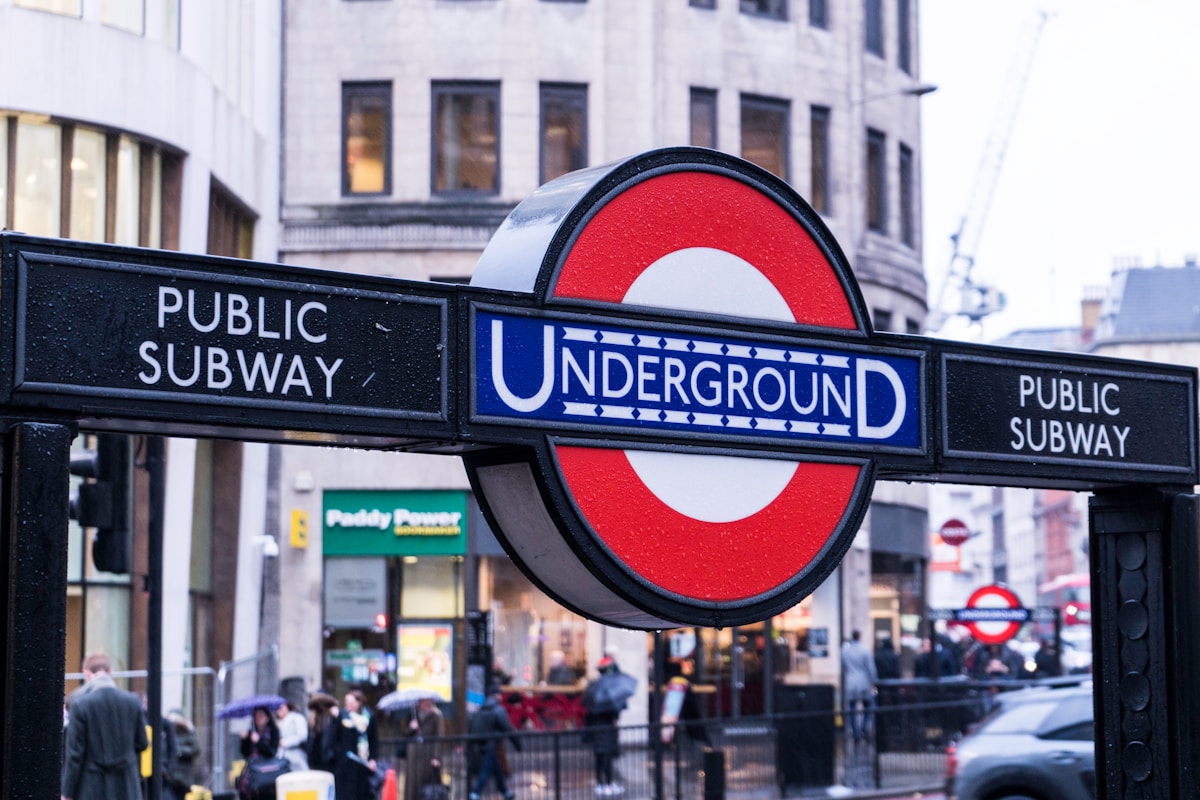
To prioritize safety during your London visit, focus on several key aspects of your trip planning and execution.
Start by selecting reputable accommodations and services, exercising caution with personal information, and considering travel insurance for added protection.
Additionally, familiarize yourself with common local scams to avoid falling victim to fraudulent schemes during your stay in the city.
Choosing Reputable Accommodations and Services
Selecting trustworthy accommodations and services is essential for ensuring a safe and comfortable stay in London.
When choosing where to stay, prioritize reputable hotels, hostels, or vacation rentals with positive reviews and strong security measures. Look for properties in well-lit, bustling areas with easy access to public transportation.
Before booking, research the neighborhood’s safety profile and verify the legitimacy of the accommodation provider.
Option for established platforms like Airbnb, Booking.com, or official hotel websites to reduce the risk of scams. Upon arrival, inspect your room’s security features, including locks, safes, and emergency exits.
When selecting services such as tours, transportation, or dining options, consider the following:
- Choose licensed black cabs or reputable ride-sharing apps for transportation.
- Book tours through established companies with verifiable credentials.
- Dine at restaurants with high hygiene ratings displayed in their windows.
Being Cautious with Personal Information
Protecting your personal information is paramount when visiting London, as it helps safeguard against identity theft and various scams targeting tourists.
Be vigilant about sharing sensitive data, especially in public spaces or with strangers. Avoid discussing travel plans, accommodation details, or financial information loudly in public areas where eavesdroppers may lurk.
When using public Wi-Fi networks, exercise caution. Refrain from accessing banking websites or entering credit card information on these unsecured connections.
Consider using a Virtual Private Network (VPN) for added security when browsing online. Be wary of shoulder surfing, particularly at ATMs or when entering passwords on your devices in crowded areas.
Keep important documents like passports and visas secure in your hotel safe, carrying only necessary items with you. Use RFID-blocking wallets to protect contactless cards from digital pickpockets.
Be cautious when sharing personal information with tour operators or service providers, verifying their legitimacy before divulging any details.
By maintaining a heightened awareness of your personal information’s value, you can greatly reduce the risk of falling victim to scams or identity theft during your London visit.
Considering Travel Insurance
While exploring London’s vibrant attractions, having extensive travel insurance can provide invaluable peace of mind and financial protection against unforeseen circumstances.
When selecting a policy, make sure it covers medical emergencies, trip cancellations, and lost luggage.
Many travelers underestimate the importance of insurance, but it can be a vital safeguard in a foreign city. Consider policies that offer coverage for:
- Emergency medical treatment and hospital stays
- Repatriation in case of serious illness or injury
- Theft of personal belongings, including cash and electronics
Research different providers and compare their offerings to find the most thorough coverage within your budget. Pay attention to policy exclusions and understand the claim process before purchasing.
Some credit cards offer travel insurance as a perk but verify the extent of coverage to determine if additional insurance is necessary.
Remember that the NHS (National Health Service) in the UK may not cover all medical expenses for visitors, making travel insurance even more essential.
Familiarizing Yourself with Local Scams
Several common scams target tourists in London, making it crucial to stay informed and vigilant during your visit.
Familiarizing yourself with these schemes can help you avoid falling victim and guarantee a safer, more enjoyable trip.
Be wary of distraction tactics, where one person diverts your attention while another pickpockets you. Stay alert in crowded areas, particularly around popular attractions and on public transport.
| Scam Type | Description | How to Avoid |
|---|---|---|
| Fake Charity Collectors | Individuals posing as charity workers | Verify legitimacy, donate directly to organizations |
| Unlicensed Taxis | Unofficial cabs overcharging or taking detours | Use licensed black cabs or pre-book rides |
| Three-card Monte | Street gambling game rigged against players | Don’t participate, it’s illegal and you’ll lose money |
Be cautious of unsolicited offers, whether for discounted tickets, tours, or accommodation. Legitimate businesses rarely approach tourists on the street.
If a deal seems too good to be true, it probably is. Keep your belongings secure and be discreet with valuables.
Trust your instincts and don’t hesitate to walk away from uncomfortable situations. By staying alert and informed, you can confidently explore London while minimizing risks.
Staying Safe at Night in London
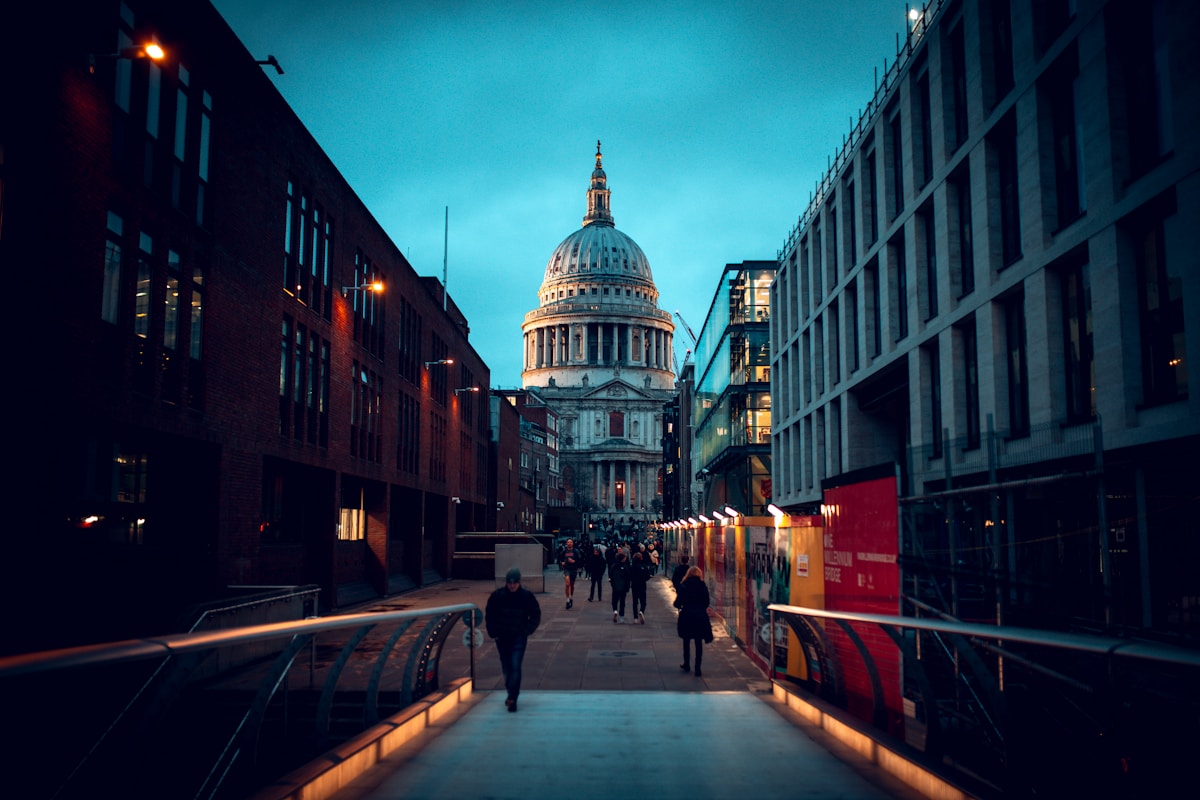
When enjoying London’s nightlife, safety should remain a top priority. Here are some tips to prevent potential risk and guarantee a secure and enjoyable evening out in the city:
Avoiding Unlicensed Cabs and Taxis
One essential safety measure for maneuvering through London at night is to steer clear of unlicensed cabs and taxis, which can pose significant risks to unsuspecting passengers.
These unauthorized vehicles often lack proper insurance, safety standards, and driver vetting processes, potentially endangering riders.
To guarantee your safety, only use licensed black cabs or pre-booked minicabs from reputable companies. Look for the following indicators of a legitimate taxi:
- A clearly visible taxi license number
- A working taximeter
- The driver’s photo ID displayed prominently
When hailing a cab, use designated taxi ranks or book through official apps like Gett or Free Now.
Avoid accepting rides from individuals approaching you on the street, as these are likely unlicensed and potentially dangerous.
If you choose to use ride-hailing services like Uber, always verify the driver’s identity and vehicle details against the information provided in the app before entering the car.
However, here are another key safety points to reminds for using licensed taxis and transportation:
- Always pre-book or use designated taxi ranks
- Avoid unmarked vehicles or unauthorized drivers offering rides
- Share your trip details with a friend or family member
Being Aware of Your Surroundings in Bars and Clubs
Maintaining vigilant awareness of your surroundings in London’s bars and clubs is essential for ensuring personal safety during nighttime outings.
When frequenting these establishments, keep your drink in sight at all times and never accept beverages from strangers to prevent potential drink spiking. Trust your instincts; if a situation feels uncomfortable, don’t hesitate to leave.
Be mindful of your belongings, keeping valuables secure and out of sight. Utilize the venue’s cloakroom for coats and bags when available.
Stay connected with your group, establishing a meeting point in case of separation. Avoid excessive alcohol consumption, which can impair judgment and make you vulnerable.
Be cautious when interacting with new acquaintances, and refrain from sharing personal information or your accommodation details.
When leaving, use reputable transportation methods such as licensed taxis or ride-sharing apps. If walking, stick to well-lit, busy streets and remain alert to your environment.
Contact Numbers in Case of an Emergency
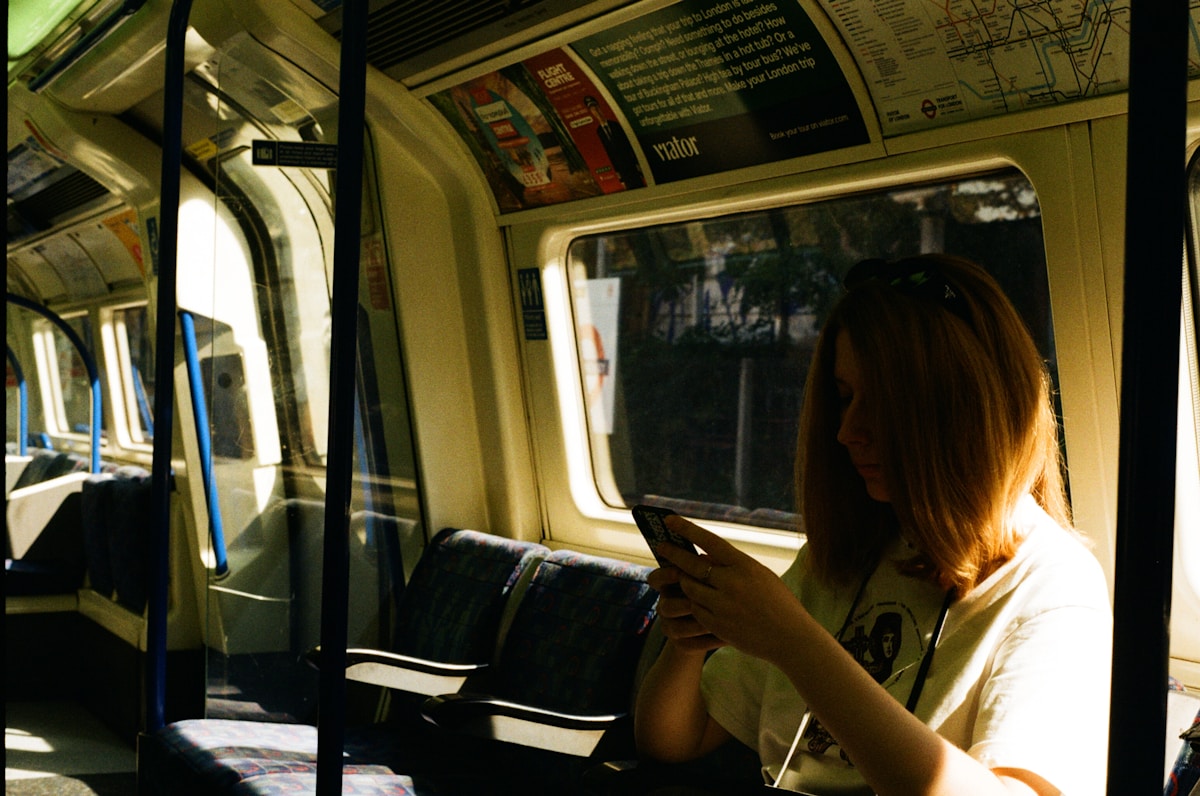
In an emergency situation while in London, it’s crucial to know the right contact numbers for immediate assistance. Here are some essential emergency numbers to help you stay safe while exploring London:
999 and 112 for Emergency Calls
In addition to the well-known emergency number 999, visitors to London should be aware that dialing 112 will also connect them to emergency services throughout the European Union.
This pan-European emergency number works alongside the UK’s national emergency number, providing an additional layer of safety for travelers.
Both 999 and 112 are toll-free and can be dialed from any phone, including mobiles without a SIM card or locked devices.
When using either number, you’ll be connected to an operator who can dispatch police, fire, ambulance, or coast guard services as needed.
Key points to remember about emergency calls in London:
- 999 and 112 are interchangeable and equally effective
- Calls are free and can be made from any phone
- Operators speak English, but translation services are available
101 for Non-Emergency Calls to the Police
While 999 and 112 are reserved for emergencies, London provides a separate non-emergency number, 101, for contacting the police in less urgent situations.
This number is designed to report crimes that don’t require immediate police presence or to seek general advice on law enforcement matters.
Typical scenarios for using 101 include reporting stolen property, vandalism, or providing information about local crime.
It’s also useful for noise complaints, minor traffic incidents, or suspicious activities that don’t pose immediate danger. The 101 service operates 24/7 and connects callers to their local police force.
When dialing 101, be prepared to provide details about your location and the nature of your inquiry. Calls are prioritized based on urgency, so wait times may vary.
111 for Non-Emergency Calls to Local GP or Hospital
For non-emergency medical inquiries or concerns in London, the NHS 111 service provides an essential point of contact, offering professional advice and guidance without the need to visit a hospital or GP surgery.
This free service is available 24/7 and can be accessed by dialing 111 from any phone within the UK. When using NHS 111, you’ll be connected with trained advisors who can:
- Assess your symptoms and provide appropriate medical advice
- Direct you to the nearest suitable healthcare facility if needed
- Book appointments with GPs or hospitals for urgent cases
For travelers, it’s important to highlight that NHS 111 is not a replacement for emergency services. In life-threatening situations, always dial 999 immediately.
However, for minor ailments, health concerns, or if you’re unsure whether your condition warrants a trip to the emergency room, NHS 111 is an invaluable resource.
Remember to have your accommodation address and any relevant medical information on hand when calling.
Additional Tips for Female Travelers
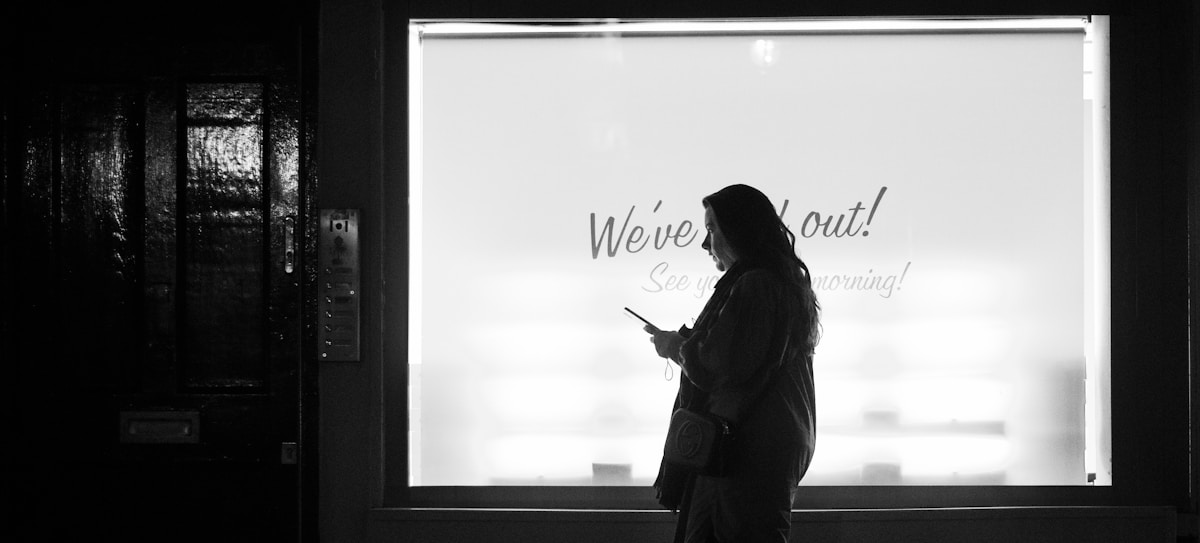
Female travelers in London should prioritize personal safety, especially during nighttime hours.
Remain vigilant of your surroundings, steering clear of quiet and poorly lit areas that may pose increased risks.
Opt for well-illuminated and bustling streets or neighborhoods when traversing the city after dark, as these locations typically offer a greater sense of security and the presence of others.
For female travelers in London, especially those exploring the city at night, staying safe is a top priority.
While London is generally a safe destination, whether you’re a solo traveler or on a family trip, it’s important, especially for women, to stay mindful of a few key safety tips to minimize risks.
Here are some tips to help make your traveling in London smooth and safe:
1. Avoiding Quiet and Poorly Lit Areas
When exploring London, especially at night, it’s essential to prioritize safety by avoiding poorly lit or desolate areas, particularly for women traveling alone.
- Stick to well-lit, populated routes, even if they are longer.
- Avoid shortcuts through parks, alleyways, or quiet streets after dark.
- Use ride-sharing apps or licensed black cabs for transportation during late hours.
- Familiarize yourself with 24-hour businesses along your route.
- Carry a small, powerful flashlight to improve visibility in dark areas.
2. Being Aware of Your Surroundings at Night
Staying alert and aware of your environment is crucial for ensuring safety during nighttime travel in London.
- Plan your route in advance and stick to busy areas, especially for any first timer traveler.
- Keep your phone charged and easily accessible in case of emergencies.
- Walk confidently, avoiding distractions like headphones.
- Pay attention to your surroundings and note potential escape routes or safe spaces.
- If you sense someone following you, move toward a crowded area or approach a group.
- Carry a personal alarm for emergencies and keep it within reach.
- When using public transport, sit near the driver or in a well-populated carriage.
Stay Safe in London 101: Wrapping Up
London remains a generally safe destination for travelers, but ‘be prepare‘ is essential. By following safety tips, staying alert, and knowing emergency procedures, visitors can reduce risks.
Researching accommodations and understanding local customs further enhance the travel experience.
With proper preparation, travelers can confidently explore and enjoy the moment while staying safe in London throughout their stay.
Frequently Asked Questions (FAQs)
Is London safe for travelers?
Yes, London is generally safe for travelers. However, it’s important to stay mindful of your surroundings, especially in crowded areas or after dark, and follow local safety practices to ensure a smooth visit.
What are the key emergency numbers in London?
The key emergency numbers in London are 999 for urgent needs; police, fire, medical emergencies, and 101 for non-emergency police assistance. These are essential to have on hand while traveling.
What are some safety tips for navigating London at night?
When navigating London at night, opt for licensed taxis or ride-sharing services, stick to well-lit areas, and avoid poorly lit or deserted streets. If possible, travel in groups and share your location with a trusted contact.
How can I protect my belongings while traveling in London?
To protect your belongings, keep valuables close to your body, use secure bags, and avoid displaying expensive items in public. Stay aware of your surroundings, especially in crowded places where pickpockets may operate.
Which neighborhoods in London are considered the safest?
Some of the safest neighborhoods in London include Richmond upon Thames, Harrow, and Sutton. These areas are known for their low crime rates and provide a peaceful environment for travelers. But always keep in mind that to stay safe in London, maintain an awareness surrounding is essential.

